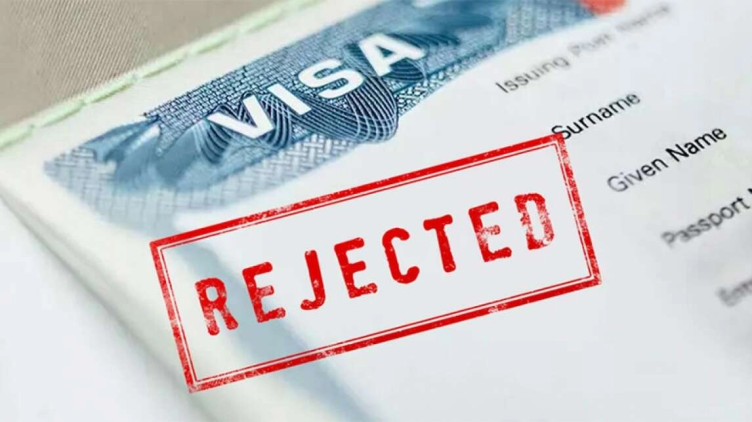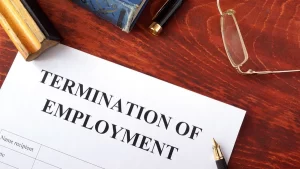
Citizenship Denied: Can You Reapply? Here’s What You Need to Know
For most immigrants, gaining U.S. citizenship is the light at the end of a long and difficult tunnel. After many years of living and working legally in America, permanent residents finally qualify to naturalize and enjoy the full rights of being a citizen.
But what if, after all that waiting, your citizenship application gets denied? It’s a nightmare scenario but also a real possibility. In fiscal year 2022, the citizenship denial rate was around 14%.
Getting that denial letter can feel devastating. But take heart – it may not be the end of your citizenship dreams. You typically have options to appeal the decision or reapply. With the right legal guidance, persistence usually pays off.
Reasons Why Citizenship Applications Get Denied
Citizenship applicants are most often denied because of:
- Failing the English and civics exams
- Lacking sufficient continuous residence and physical presence
- Issues related to moral character
- Misrepresentation or fraud
Failing the naturalization tests happens fairly frequently – in 2022, the failure rate was about 30%. But you can retake the tests, usually on the spot.
Residence issues also lead to frequent denials. You must have lived in the U.S. for 5 years (or 3 years if married to a citizen) before applying. Any trip abroad over 6 months can disrupt “continuous residence.”
Criminal issues and other character concerns probably lead to the most complicated denials. Certain crimes make you ineligible for 5 years at least. You also must have “good moral character” for the 5 years before applying.
Finally, any application misrepresentations – even accidental ones – can also trigger denials. U.S. Citizenship and Immigration Services (USCIS) scrutinizes applications closely for fraud.
Strategizing Between an Appeal or Reapplication
Once denied, you have two main recourses – file an appeal or apply again. Deciding between them depends on your situation.
When an Appeal Makes Sense
If you believe USCIS made a factual error in denying your application, filing an appeal may be your best bet. For example, say USCIS claimed you took a year-long trip abroad when you really only left for 3 months.
To appeal, you must file a Form N-336 within 30 days, along with your written legal brief detailing how USCIS erred, plus documentation. You’ll also have to pay a fee of $700.
After filing, you’ll get a hearing before an immigration officer within 6 months. This gives you a chance to present new evidence. The officer will take a fresh look at your case and the denial.
Having an experienced immigration attorney help with your N-336 brief and represent you at the hearing is highly recommended. They can strengthen your arguments and highlight where USCIS went wrong.
When Reapplying, Is the Smarter Move
In other situations, applying again from scratch makes more sense. This is true if the denial was legitimate and you need time to correct the underlying issue.
For instance, say you were denied for failing the English test. Retaking it right away may not get you a passing score. You’re better off spending a few months improving your language skills first.
Or say you were denied for a recent criminal conviction. It may be wiser to wait 3-5 years before reapplying to demonstrate good behavior.
Reapplying also tends to be much faster than appealing. USCIS appeals often take over a year to resolve.
What to Expect When Reapplying After Denial
If you choose to reapply, here’s what to expect:
- Waiting periods: If denied for failing tests or residence requirements, you can reapply immediately. But expect to wait 3-5 years after moral character denials.
- Repeat steps: You must complete and resubmit Form N-400, pay fees again, and provide updated documentation.
- Explain the denial: Your new application must include details on why you were denied before. Being upfront looks better than hiding it.
- Another interview: You’ll go through the whole interview process again. It likely will focus on overcoming the reason your prior application was denied.
- Second chances: The new interview gives you a clean slate to make your case with an officer not involved in the original denial.
While getting denied is discouraging, it’s not necessarily the end of your path to U.S. citizenship. Be strategic in deciding between requesting a hearing or reapplying. And consider retaining an immigration lawyer’s help to get approved the second time around. Don’t give up on your dreams of becoming a citizen.
Let an Experienced Citizenship Lawyer Help You
Despite its challenges, seeking citizenship is a journey that forever changes your life and connects you to the fabric of this country. Gaining the right to vote, serve on a jury, and feel at home in the U.S. makes the effort worthwhile.
With determination and the guidance of experienced counsel at the Law Office of Lina Baroudi, immigrants can navigate the road to citizenship and embrace their newfound sense of belonging.
The attorneys at the Law Office of Lina Baroudi in San Jose, California, have years of experience appealing denials and guiding reapplications to success. If you’ve been denied citizenship, contact their team today to schedule a consultation.


